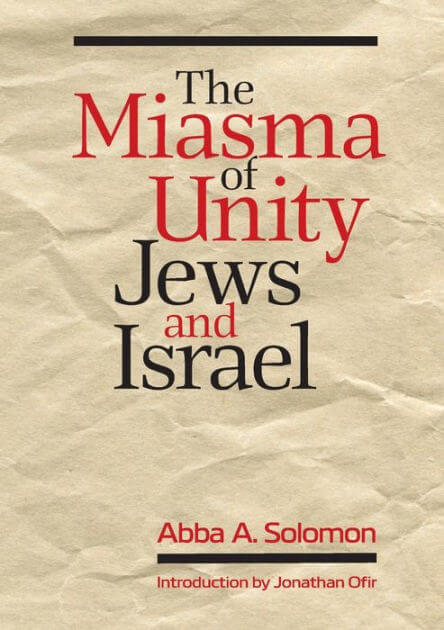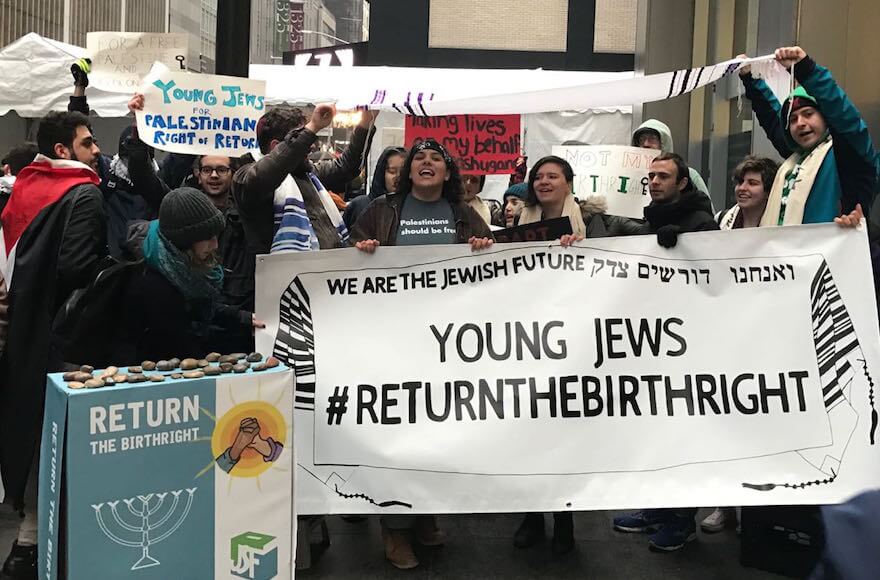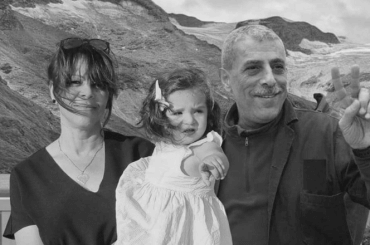THE MIASMA OF UNITY
Jews and Israel
by Abba A. Solomon
184 pp. Lulu.com $14.50
In these times, when the Israeli government is unfurling its fascist sails and colors, there seems to be no real democratic alternative in the Zionist spectrum, and the consensus in the human rights community is that Israel is an apartheid state, many Jews around the world are questioning their relationship with Israel, and wondering whether it really has to be like this, Zionism or bust. Coming at this pivotal moment Abba A. Solomon’s new book, The Miasma of Unity: Jews and Israel, offers a cry for another form of Jewishness, one not inextricably tied to Apartheid, but one championed by ideals of dignity, fairness, freedom, and humanity.

Salomon’s book is a collection of thirty-six chapters which are essays and articles from the past decade, all of which have appeared in print in various outlets, most of them on this site (full disclosure: I have been honored to write the introduction to the book). He focuses his analysis on the U.S., where the young generation is far more open to accepting the assessment that Israel is an apartheid state. A recent poll shows that while 25% of Jews overall believe Israel practices apartheid, among those under 40, the rate jumps to 38%. This is not just a passing generational rebellion against Israel – there is a tectonic shift in how the state is viewed, and that inevitably means a shift in how Zionism is viewed. David Ben-Gurion referred to those Jews who were not on board the Zionist project as “human dust.” Many Jews are wondering whether they are more than dust, and whether Israel and Zionism need to be their credo of dignity. Zionism told them they can’t think out of the Zionist box, and when that box only leads to apartheid, they naturally want out. Solomon’s The Miasma of Unity addresses and explains this important shift.
Solomon’s title refers to words uttered by American Jewish Committee (AJC) member Maurice B. Hexter in 1946 – who used the precise words “miasma of Jewish unity” in an attempt to rebuff the assumption that Jewish organizations outside Palestine should submit to unflinching support for the Jewish nation-state in Palestine – the goal of the Zionist movement. This idea of Jewish singularity is central to the Zionist project. We hear of the “one and only Jewish state” when Israel lobby organizations try to defend it from condemnation. Joe Biden has often told the story of his meeting Golda Meir in 1973, and how she told him about the “secret weapon” Israel has, which is that “we have no place else to go.” That is to say, because it’s that one place, we all have to be singular about supporting its existence, as it were, because not doing so is tantamount to the annihilation of the Jews. The Zionist line suggests putting disagreements aside because this is about life or death, no time for nonsense.
But this is a myth. Of course, Jews live elsewhere – most of them don’t live in Israel, and about as many as those who live in Israel live in the U.S. (around 7 million). So how can you say that Jews have no other place to go? And how would Jewish communities around the world relate to this advocacy, of a singular representation of Jews, while their very existence outside of that singularity contradicts the argument? This theme was also covered in Solomon’s earlier book – The Speech, and Its Context: Jacob Blaustein’s Speech the Meaning of Palestine Partition to American Jews Given to the Baltimore Chapter, American Jewish Committee, February 15, 1948 – and is revisited in several of Solomon’s chapters in the current book.
The message of Salomon’s book is that things didn’t have to go this way, but that Zionism took over and dominated Jewish life in the supposed ‘diaspora’ and made Jews who felt at home in the United States and elsewhere bound by a sense of belonging – indeed, some kind of obligation – where they implicitly become foreigners in their own country, and where questioning of the self-proclaimed Jewish state’s core policies (certainly its raison d’etre) became synonymous with hatred of Jews – of themselves – or what is known as antisemitism.
It is natural for Salomon to give voice to those Jews elsewhere who were concerned with the whole attempt to nationalize Jews, as was the case with the Jewish British minister Edwin Montagu who in 1917 heavily criticized his government over the Balfour declaration. Montagu said that “Zionism has always seemed to me to be a mischievous political creed” and asserted that “there is not a Jewish nation”:
“The members of my family, for instance, who have been in this country for generations, have no sort or kind of community of view or of desire with any Jewish family in any other country beyond the fact that they profess to a greater or less degree the same religion. It is no more true to say that a Jewish Englishman and a Jewish Moor are of the same nation than it is to say that a Christian Englishman and a Christian Frenchman are of the same nation: of the same race, perhaps, traced back through the centuries – through centuries of the history of a peculiarly adaptable race”.
Montagu said that “when the Jews are told that Palestine is their national home, every country will immediately desire to get rid of its Jewish citizens, and you will find a population in Palestine driving out its present inhabitants.” While the getting rid of Jewish citizens has not come to pass, the driving out of Palestinian inhabitants certainly has, and it continues.* Jewish communities around the world are managing a balancing act of supporting Zionism with its inherent principle of reducing Palestinian presence while securing their position as liberals.
The liberal-Zionist model that J Street represents in U.S. politics is thus also one that receives a critical review from Solomon – he calls J Street’s insistence on the “democratic and Jewish homeland,” as they phrased it, a contradiction – which also progressives such as Bernie Sanders accept as an axiom. Solomon summarizes:
“Now, an American politician is expected to be affirmatively “pro-Israel” if they wish to demonstrate their philosemitism to Jewish voters and donors, and J Street’s reason for being is to have its counsel accepted as reasonably conventional.”
Solomon explores not only realities that arose from this alliance, particularly between the U.S. and Israel – but also what alternative models of Jewish identity may be possible. Anti-Zionism says something about what one is not but does not convey a positive belonging. Such belonging can be seen in earlier models of Jewish existence, like that of the socialist Bund, or more officially the General Jewish Labour Bund in Lithuania, Poland and Russia, an organization that was widespread until its effective eradication under World War Two, after nearly half a century of existence. The motto of that organization was ‘Doykeit’ in Yiddish – meaning ‘hereness’, under the idea and the slogan of “Where we live, there is our country!” This model of thinking is predictably gaining traction in these times, and Solomon covers a couple of current gatherings in New York that are reviving the Bundist principles.
Solomon reaches back a decade in a chronological, backward-moving order year for year. His coverage of current events reminds the reader of what was going on a few years ago – but Solomon’s reflections often go back several decades, like in the above-mentioned case of the Bund, to provide a wide scope of reflection that is above mere current news. As the reader is taken back in time, the decade ends up seeming quite short – as if, really, not much has happened. Indeed, the feeling ends up being that since Israel was established and almost all Jews fell in line with Zionism, we have been seeing the same story over and over again. In this sense, Solomon’s chapters tell us, in so many ways, that we are still stuck with that miasma of Jewish unity – while Palestinians are there to pay for it: still exiled under the Apartheid that is an integral part of the Zionist story.
* An extreme historical case merits mentioning in this respect, concerning the Nazi case – not just the genocide of Jews, but also the Zionist collaboration with Nazis embodied in the Transfer Agreement, active between 1933-39. The Zionist-Nazi agreement was a means of getting rid of Jews by sending them to Palestine. The genocidal phase of extermination took place later, in the years of the Second World War – so the Nazi case does demonstrate “getting rid of Jewish citizens” in various modes. An additional method to the two mentioned should also be mentioned – the Nuremberg Laws of 1935, which stripped those defined as Jewish from citizenship. The Transfer Agreement in particular seems to confirm Montagu’s mentioned fear.



I was talking to a sympathetic non-Jew today, who is heartened by the way young Jews are falling away from Zionism. He said that Jews as a body are blamed for what Israel does and is, and Jews are starting to say Not In My Name and Not On My Dime.
“…the consensus in the human rights community is that Israel is an apartheid state…A recent poll shows that while 25% of Jews overall believe Israel practices apartheid, among those under 40, the rate jumps to 38%…”
Breaking news: Tom “Israel had me at hello” Friedman had a two-page essay on the Middle East this Sunday ( https://www.nytimes.com/2023/06/06/opinion/israel-saudi-arabia.html ). Buried in the article:
“The Saudis could cement Netanyahu’s extremist coalition in power for years — by rewarding Bibi with the ultimate prize of diplomatic relations with Riyadh — without any Israeli concessions to the Palestinians in the West Bank. But this would likely lock Israel into an apartheid future.”
There we have it: Tom Friedman uses the word apartheid in the New York Times!
American Jewish Committee used to be non-Zionist, as many other Jewish organizations. The Zionist Organization of America used to be far more moderate. The anti-Zionist Bund used to exist and was a bigger political force than Zionism. Reform Judaism used to be explicitly anti-Zionist, as was Orthodox Judaism. All of these things are not true anymore. If anything Jews as a whole have gotten far more Zionist over the last 100 years. And what of Russian and Ukrainian Jews, who have immigrated to Israel in record numbers over the last year.
Edwin Montagu’s statement made some sense in 1917, but made zero sense in 1942 to pick a year, because the millions murdered that year weren’t killed for their religion but for their “race”. Maybe Montague’s statement makes sense again in 2023 when the Shoah is more of an ancient memory. Unlike what it was in 1973. In fact for all their at homeness in America, American Jews were relatively powerless to rescue their coreligionists, whatever the reasons for their extermination. The fact that Ofir can’t deign to name this historical fact and only refers to it obliquely in reference to the eradication of the Bund, indicates the dishonesty of this review. Maybe the relevance of the Shoah is reduced for those who reach maturity long after its occurrence (in Jewish history it is recent, but in American history it is long ago). But to avoid mentioning it by name betrays a deep seated dishonesty.